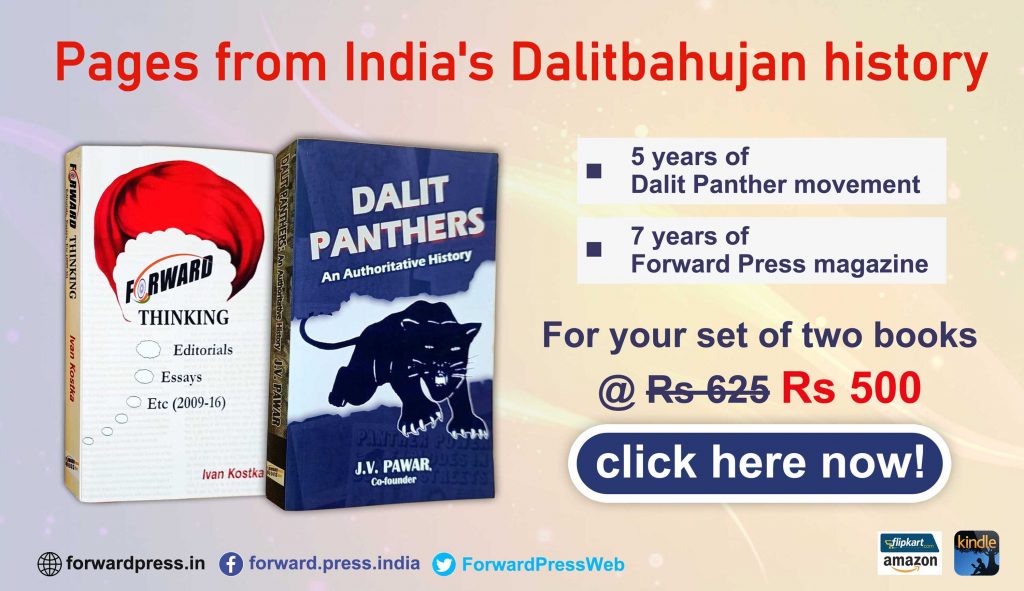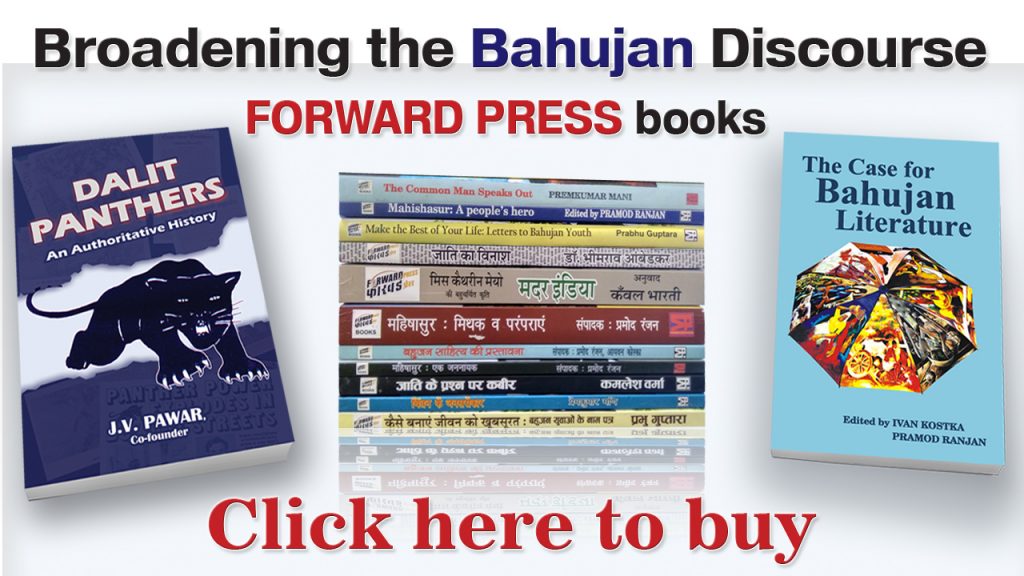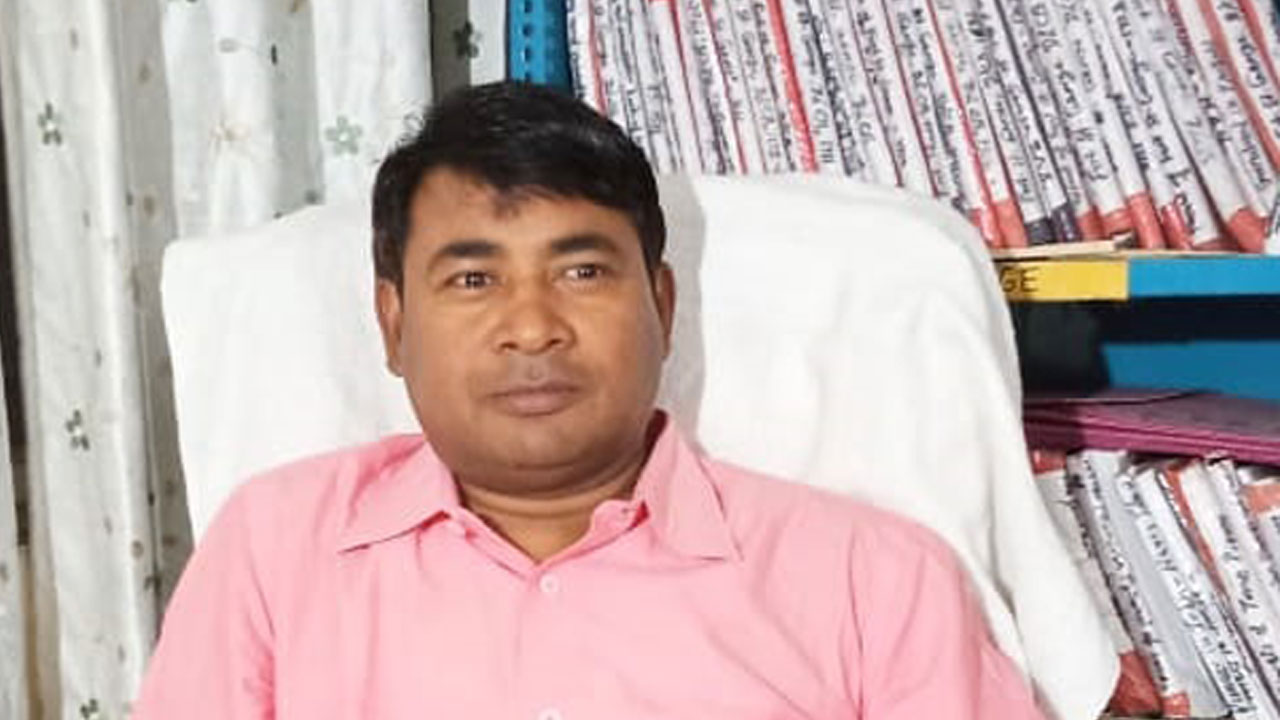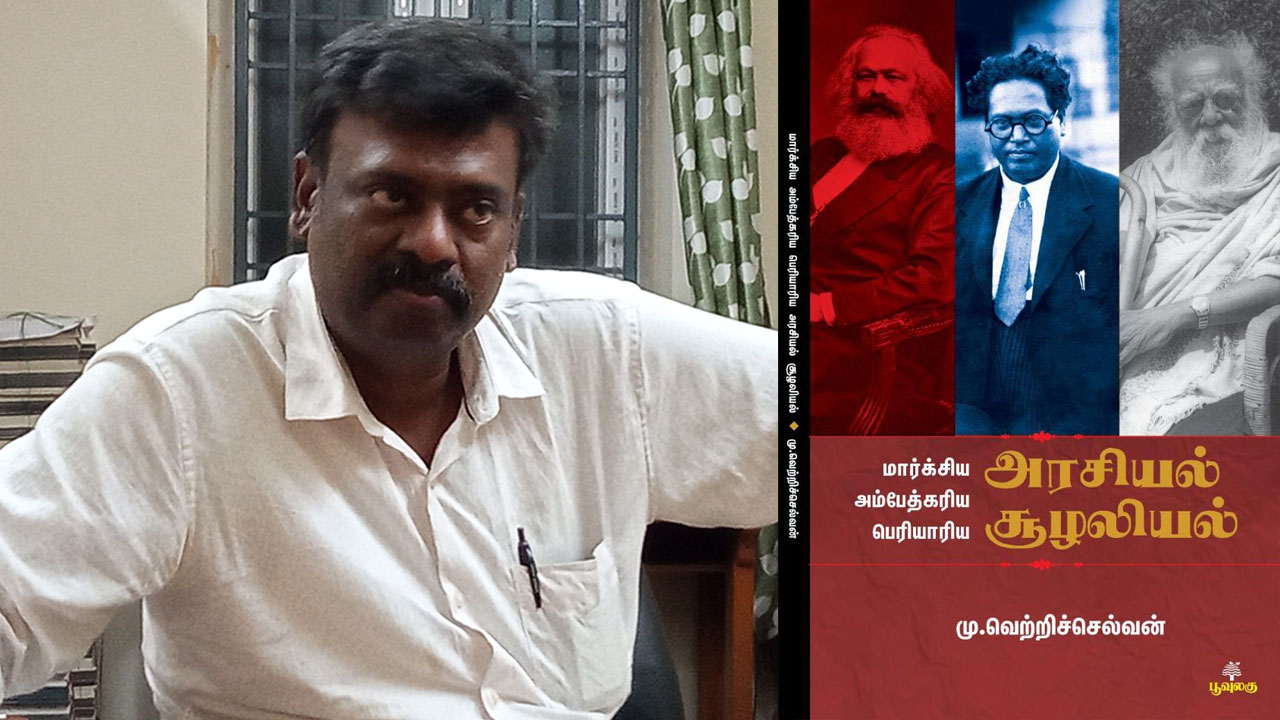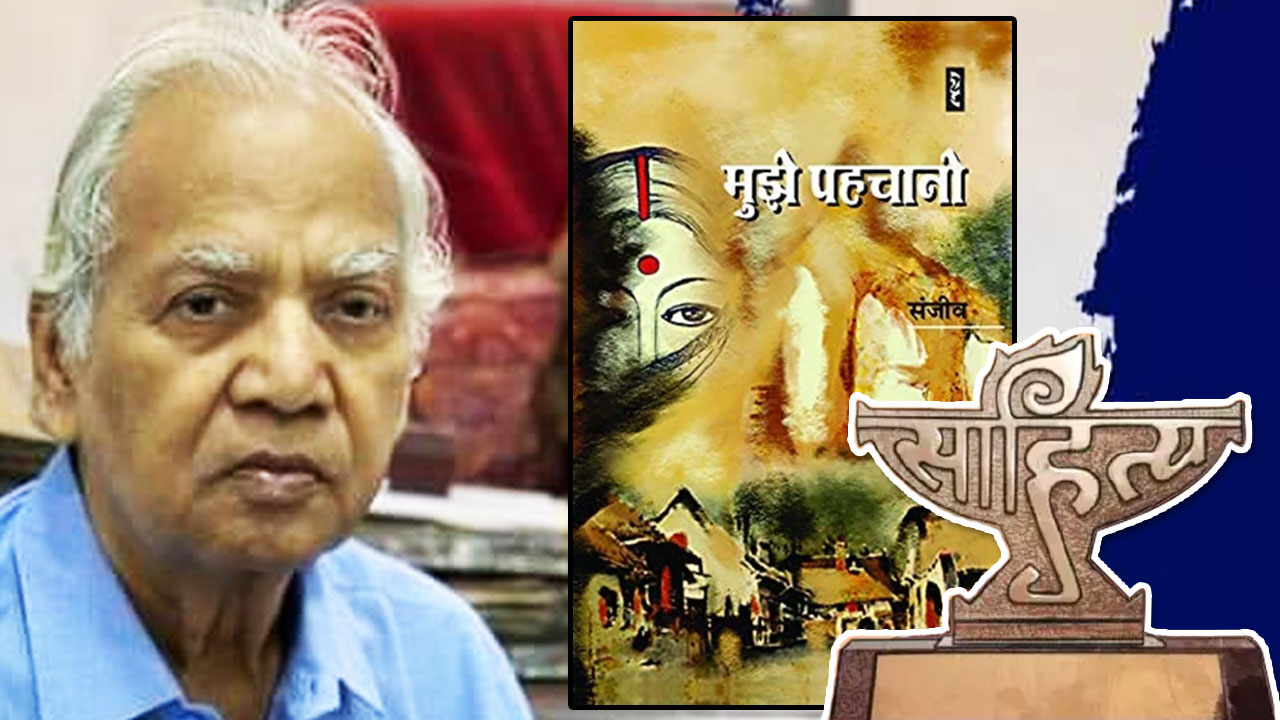Rampur is known for its grand, historical Reza library, but when we (which included Forward Press Hindi Editor Nawal Kishore Kumar) travelled to this small town on 8 August 2021 we spent most of our time in Kanwal Bharti’s tiny library-cum-study. It is at this library-cum-study that Kanwal Bharti entertains his guests, most of whom are fellow writers. The library is stacked with books and files, with reams of his research, which are potential books. This is the place of origin of his prolific writings and his acerbic comments on society, politics, culture and the world of writing.
He dedicates a substantial part of his day to his writing but that doesn’t mean he cuts himself off from his sickly wife and his eldest son and family, including his two grandchildren. The door that connects the library to the rest of the house is always open. Kanwal Bharti, who is limited in his mobility due to a knee problem, passionately shouts out instructions to his son and his grandchildren and they in turn regularly show up. It is perhaps this connection with society, its joys and sorrows, that lends an authenticity to his writings.
He grew up in the slums of Rampur inhabited by labourers. He never had the chance to ask his father Bhagwan Das or his grandfather Chotelal Jatav where they originally came from. In the desolation of this settlement on either side of a drain, books were a welcome distraction but all the writings felt like they were from a world he was not part of. He searched for the voices of people like himself but there was none. That is when he embarked on writing. There were aspects of Rampur which helped in his growth as a writer and a scholar. His schoolteachers were Muslim and they never treated him as an untouchable. As a newbie in journalism, his mentor was Mahendra Prasad Gupta, whose loyalty lay with the Rashtriya Swayamsevak Sangh (RSS) but who, as he interacted with some Muslims of Rampur, discovered that there could indeed be a world without castes and untouchability and quit the RSS.
Even when he ventured into literary criticism, social commentaries, Kanwal Bharti has remained a journalist at heart, with his finger on the pulse of a casteist and feudal society, be it when he was in the employ of the Uttar Pradesh government’s department of social welfare or after retirement. As a victim of casteism and feudalism himself, there could be no better critic than him.

But he is not a cynic. He is quick to note the contributions of even those he bitterly criticized. Take, for example, Azam Khan, the Samajwadi Party leader from Rampur who is in prison for corruption-related charges. A few years ago, Bharti had to face Khan’s wrath for claiming on social media that Khan had grabbed land that belonged to a madarsa. Khan has left his mark on the Rampur cityscape, building roads, a university, a mall, a resort and even replacing historical city gates. But Bharti acknowledges that Azam Khan, who hails from a Muslim Barber caste, did manage to prise local politics from the hands of the Nawabi elite and put it in the hands of the common man. He is critical of the Naya Kahani movement that involved Rajendra Yadav, whose contributions in the relaunching of Hans and as its editor, though, he says, are unparalleled.
Kanwal Bharti has read and continues to read those whose thinking and writings he disagrees with and whose ideologies and sensitivities he dismisses. One can find works of Acharya Ramchandra Shukla, Mahavir Prasad Dwivedi, Ramvilas Sharma, Hazari Prasad Dwivedi, Namvar Singh and many others in his library. He has read all of them extensively. His reading list includes writings of different genres from all over the world. This is reflected in his criticism, discourses he initiates and engages with, his translations and even his raginis.
We had been reading and hearing Kanwal Bharti for years and had also met him on a couple of occasions. That had given us the impression that writing was everything to him – that, to him, writing was like breathing. He lived to write. This longish meeting with him confirmed this impression – his rich library, his love for books and his future plans revolving around writing projects, so many that a lifetime won’t be enough to accomplish them.
The most prominent feature of Kanwal Bharti’s writings is that they are centred on opposing and resisting all forms of injustice, exploitation and suppression and on exploring their roots. Like Phule, Periyar and Ambedkar, injustice in no form is acceptable to him. He is forthright in holding Brahmanism and capitalism responsible for all the ills plaguing the country and believes that they are at the root of all forms of injustices. He has no doubts that an India founded on justice, equality and brotherhood can be built only by annihilating Brahmanism and capitalism. He dreams of a democratic, socialist India – a dream he forcefully reiterated during the eight hours we spent with him.
When Bharti is not engaged in serious ideological writing, he expresses himself in raginis, the folk verse form. He weaves dreams of an egalitarian society in these verses. Bharti is among those writers who strengthened pro-people literature as opposed to the peddlers of Hindutvavadi literature and copycats of European literature. He is a big name in the Bahujan-Sraman tradition of literature, which is the only pro-people tradition in India. He abhors superficiality. He praises the scholarship of those whom he is bitterly opposed to and whose sensitivities he rejects – including leftist closet Hindutvavadi Ramvilas Sharma.
For him, writing is not a means for earning fame, respect and money. He doesn’t write to win awards. He doesn’t write to ingratiate himself with any particular group or people. Yet when a writer doesn’t get the appreciation he deserves, he is bound to be somewhat angry and disappointed. It sometimes turns them into a bitter and reactionary man. This can be seen in Kanwal Bharti, too, at times but he is able to compose himself quickly – which is commendable.
The biggest obstacle Bharti faces as a writer is that he hails from the “southern part of the village”. Ambedkar, too, hailed from there. When the “northern part of the village” did not acknowledge the writings of a great thinker like Ambedkar, how would it accept someone like Bharti! Even today, “the north” dominates “the south” despite the fact that the latter has been protesting and resisting and creating the best in Hindi literature.
Translation: Amrish Herdenia
Forward Press also publishes books on Bahujan issues. Forward Press Books sheds light on the widespread problems as well as the finer aspects of Bahujan (Dalit, OBC, Adivasi, Nomadic, Pasmanda) society, culture, literature and politics. Contact us for a list of FP Books’ titles and to order. Mobile: +917827427311, Email: info@forwardmagazine.in)
The titles from Forward Press Books are also available on Kindle and these e-books cost less than their print versions. Browse and buy:
The Case for Bahujan Literature
Dalit Panthers: An Authoritative History
